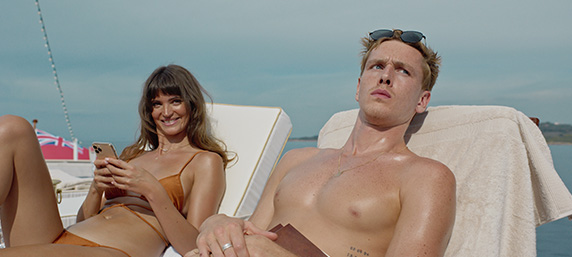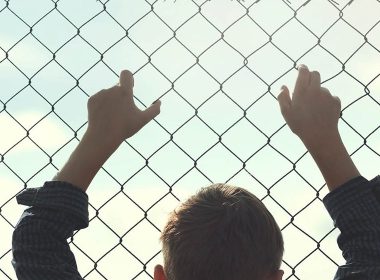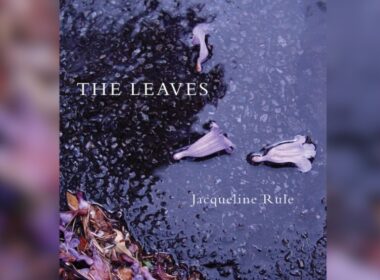Glass Onion: A Knives Out Mystery
4 out 5
Hard to express how happy I was when it turned out that Rian Johnson’s Knives Out was able to deliver on its promise: now we have another solid and entertaining whodunnit on the same lines.
I understand that works in this genre are hard to re-create. It’s not easy to pull off an original murder mystery with replay value, and wrap it up in a robust socio-economic allegory. Think how few of those have stood the test of time. Half of the successful re-creations are episodes of Columbo and Murder She Wrote. There’s nothing wrong with that — I love Peter Falk and Angela Lansbury, but there are not nearly enough excellent examples of a genre with such a simple and effective story beat (a protagonist uncovers a mystery hidden from himself and the audience).
Hail Johnson, who, in his old-school manner, was inspired by his masters, the makers of films from The Last of Sheila to Klute, Shadow of a Doubt and Hercule Poirot (David Suchet). Rather than wearing the influences on his blood-soaked sleeve, he adds his own spin to the conversation. Knives Out was a delight, only made better by its message about generational wealth and the inhumanity of the wage gap. It also introduced the world to the sui generis Benoit Blanc (Daniel Craig), a dapper sleuth with an indescribable accent. He’s aspirationally charming, quietly observing his subjects without standing in the way. He’s not the story’s protagonist, but, like a deus ex machina that is woven into the plot, its raison d’etre.
So I would gladly see more movies about Benoit, and Johnson has proved that he knows the genre so thoroughly that he can pull off the same type of film with the same protagonist several times. In Glass Onion: A Knives Out Mystery (henceforth Glass Onion), Johnson makes the very sober decision not to up the scale of the intrigue, and tries simultaneously to subvert some of our expectations of the narrative.
The plot begins with a group of friends being summoned to the private Greek island of Musk-like entrepreneur Miles Bron (Edward Norton) for a murder-mystery dinner the billionaire is organising. There’s a former supermodel Birdie Jay (Kate Hudson), politician Claire Debella (Kathryn Hahn), head scientist Lionel Toussaint (Leslie Odom Jr.) and streamer influencer and male rights activist Duke Cody (Dave Bautista). And then there’s Cassandra Brand (Janelle Monáe), Miles’s estranged partner, whose presence raises eyebrows given her previous stormy break-up with the group.
Finally, there’s Benoit, bored during COVID isolation, spending time in Zoom meetings with his friends (which includes the final screen appearance of Angela Lansbury and Stephen Sondheim). He’s been invited to join the island party even though no one, not even the host, seems to be aware of the fact that he was invited in the first place.
The rest of the plot unfolds skilfully, with the mystery kept hidden from the audience while constantly giving us as much information as possible. There are flashbacks and Rashomon-like changes of point of view. And yet the resolution is kept under wraps until the final bombastic climax (and what a monumental finale it is).
Johnson is the force that drives the film. I love the confidence with which he weaves the plot as he manages not to betray a message that is decidedly weary of the destructiveness of capitalism. It’s a tremendous coincidence that the film has come out at the height of Elon Musk’s downfall — it makes Bron seem so very familiar. But, like the previous film (and like Johnson’s The Last Jedi), it revolves around the idea that systemic social division is the root of evil in our society. And murder is probably the least of our problems.
Craig is, as usual, delightful, but, as with Ana de Armas in the first film, the best actor prize goes to Monáe. Cassandra is already a complex character, but, without giving much away, the performance takes a turn that many other actors wouldn’t be able to accomplish. It helps that Monáe has the presence of an ethereal, inscrutable movie star. The introductory scene, where they emerge from a car wearing a gorgeous black and white dress, provides only an inkling of the complexity of their character as they transform from powerful to fragile and back to powerful again.
Glass Onion is more of the same, but then Knives Out was already one of the best out there. At this point, I would be happy if the Knives Out series comprised Johnson’s and Craig’s full career, and every other year we would catch up again with Benoit Blanc as he prods yet another part of the rotten core of our unequal society. No character deserves its own never-ending franchise. No superhero, no blue alien, no mechanical monster. Only this dashing bisexual Southern beau.

Triangle of Sadness
5 out 5
From a gentle critique of capitalism to an acerbic one. If you have been paying attention to Ruben Östlund’s career, nothing here will come as a surprise.
The Swedish director has been making a career as an artist with a bone to pick with the wealthy and privileged. None of his films is subtle about the subject of the satire, but they do develop the central idea intricately, as if he’s constantly asking questions about the world surrounding him and is always unhappy with the answers given to him. As an example, one of his first features, Play, is a film about a group of immigrant kids who created a convoluted ploy to rob a group of white, rich white boys. The film, though problematic, is compelling to watch, but especially in the way it holds up a mirror to Swedish exceptionalism and the country’s fake-progressive character. In the last scene, he seems in particular to be asking his countrymen whether now is the right time to discuss the systemic issues of inequality in their society that led to this situation, or whether they will sweep the inequalities under the rug and pretend to the rest of the world that they’re paragons of virtue.
Triangle of Sadness is divided into three distinctive chapters, connected by two characters, a couple who are supermodels and social media influencers, Carl (Harris Dickinson) and Yaya (Charlbi Dean). The first section sees the couple having a tremendously inane conversation about sexism, masculinity and the expectations of their relationship, but all the juicy bits are in the second chapter. Carl and Yaya join a group of other millionaires on a little cruise somewhere in the Mediterranean. They parade wealth and excess under the supervision of the predominantly white stewards, and away from the prying eyes of the predominantly not-white cleaning staff.
At this point, Triangle of Sadness becomes its most satirical. The other guests include a Russian millionaire travelling with his wife and his youngest lover, and a lovely old couple who just happened to make their fortune selling arms in developing countries. And there’s the captain, played by Woody Harrelson, constantly inebriated, reading Karl Marx and spouting his disdain for the cargo he’s transporting. Could he be a proxy for Östlund, trying to justify being around some of the most privileged in the world despite his own opposing political views?
At its midpoint, the film’s central metaphor becomes something less elevated. Think La Grande Bouffe meets The Poseidon Adventure. It provides the perfect moment for the film to reach its “point of no return”, because nothing can be the same after it happens. What happens now is shocking, disgustingly amusing, and chaotic. This could have meant the film’s demise
But instead Östlund adds a third chapter, which I can’t say much about without giving a spoiler. And part of the pleasure in this film is not knowing what comes next.
This is Östlund’s second Palme d’Or in a row, and whether or not it’s deserved is a conversation for another day. But it’s easy to understand why so many cinephiles and cineastes like it so much. Östlund brings a gratifying boldness to its approach. This film could have been patronising and simplistic; its creator could have run with “rich people are bad”, and called it a day, and still made an excellent, entertaining piece; but Östlund continues to challenge both himself and his vision.
The third chapter, led by a career-defining role from Filipina actor Dolly De Leon, is the kind of turn that very few directors would be brave enough to venture. The treatment at this point could very easily have caused a landslide in the moral high ground of this film, but instead, as with the ending of Play, it only firms the foundations.
Just in time for the display of excessive wealth characteristic of the holiday season, a time where many behave as if there were no inequality or tragedy in the world, we have Triangle of Sadness. It’s probably the most urgently needed Christmas movie. And it’s definitely one of the funniest.




